Naturally, the results and graphs shown here are personalized according to individual test results. Some sections of the test may, for example, be deactivated for certain people. The other examples given here illustrate different configurations.
Here are the results of the DISCp4 Pro test done by Sandrine Marcouci the 1970-01-01. The answers have determined a DISCp4 Pro profile in terms of its four founding components Dominance (D), Influence (I), Steadiness (S) and Conscientiousness (C). The test took 11 minutes in total.
You will find an initial explanation of the DISC model below. We also recommend reading the free handbook available on our web-site and/or joining one of our courses.
A summary has been sent to you by e-mail (if you requested one). Please note that some webmail providers (GMail, Yahoo Mail etc.) may treat this as spam.
Analysis
This is Sandrine’s profile in detail. The graphs complete each other and represent different points of view.
| d | i | s | c | |
| Adapted | 12% | 16% | 24% | 48% |
| Natural | 24% | 16% | 24% | 36% |
| d | i | s | c | |
| Adapted | 2 | 3 | 4 | 7 |
| Natural | 4 | 3 | 4 | 6 |
| d | i | s | c | |
| Adapted | 44 | 34 | 56 | 66 |
| Natural | 50 | 40 | 50 | 60 |
Your profile is made up of four colors, which vary in brightness. Your adapted profile is marked bleu. Your natural profile is marked bleu.
Generally speaking, we can say that Sandrine
- has a reserved and distant attitude.
- dresses in an understated style.
- enjoys working alone.
- writes detailed, precise e-mails, attaching several documents. Expects these to be read.
- collects details and needs them to do their job right.
- struggles to take decisions out of fear of getting things wrong. Needs to have all the necessary elements in hand and tends to put off deadlines until all variables are known.
- tackles people and situations with diplomacy, in a rational and well-ordered way.
- respects social conventions and demonstrates courteousness.
- is uncomfortable with physical contact.
- respects rules, procedures and laws.
- is a perfectionist.
- doesn’t actively seek out teamwork, enjoys working alone.
- thinks things through and works methodically.
- only supports decisions which are logical.
- believes procedures and rules are highly important.
- is very organized and detail-oriented.
- detects, analyzes and solves problems.
- is scared to get things wrong and make a fool of themselves.
- doesn’t particularly like new things.
Explanations
Your "adapted style" represents your "public persona". This is how you present yourself to those around you. Jung referred to it as "the mask". It’s the personality you choose to reveal to others; the way you want to "appear".
Your "natural style" represents your "private persona". It reveals the aspects of your behavior which have been chosen subconsciously and are the least likely to vary or be influenced by your expectations or those of other people. This second indicator tells you what your "real personality" is: the one you automatically turn to when you struggle to maintain your "adapted" style.
It’s nothing unusual if your test results identify you as having overlapping profiles (i.e. several DISC letters), even with identical scores. The interpretation of your results takes into account both types of behavior.
It is perfectly normal for your adjusted profile and your natural profile to differ. This is the sign that, whether you are aware of it or not, rightly or wrongly, you feel the need to adjust to your surroundings, co-workers, constraints, objectives etc. For example, an accountant will tend to show off their conscientious nature, whereas a salesperson will act especially friendly and a team leader will take charge of things. However, if the differences between your profiles are too great, this may indicate you took too long over your answers during the test. In this case, it’s best to take it again and try to answer as fast as you can.
Knowing your own profile and those of your contacts will help you communicate with them more effectively. I recommend taking the test again from time to time. If your life goes through any major changes, your profile may change too.
You will find a few free memos below. Please feel free to download those which correspond to your profile as well as those of your contacts. They will allow you to identify the main characteristics which correspond to your profile and those of your contacts. The golden rule is to adjust your communication and your behavior to others.
Emotions
In certain situations, we feel different emotions. They can be either positive or negative. Some people (according to their profile) will welcome and express them easily whereas others will try and avoid them.
The blocks of color below indicate which emotions Sandrine is the most likely to feel.
| Positive feelings | |||
| Powerful | Appreciated | Altruistic | Confident |
| Victorious | Grateful | Welcoming | Mellow |
| Respectable | Bold | Joyful | Useful |
| Distant | Beholden | Good | Modest |
| Proud | Cunning | Indulgent | Dedicated |
| Determined | Friendly | Congenial | Calm |
| Motivated | Smiley | Kind | Earnest |
| Dominance | Influence | Steadiness | Conscientiousness |
|---|---|---|---|
| Annoyed | Disappointed | Tired | Confused |
| Irritated | Frustrated | Sad | Worried |
| Angry | Grumpy | Guilty | Preoccupied |
| Withdrawn | Mistreated | Reprehensible | Embarrassed |
| Rebellious | Discouraged | Unfair | Useless |
| Defeated | Resentful | Passive | Mocked |
| Humiliated | Bitter | Apathetic | Unworthy |
| Negative feelings | |||
Conflict management
( fonctionnality in bêta version )
Turning the conflict with Sandrine into something positive and productive.
Things to know
- He likes to be right and believes there is (only) one way to do things
- He conceals his emotions, which can make him seem cold and distant
- He needs all the details to make a decision and finds it (very) difficult to change his mind after the fact
Things to do
- Use a calm, poised, analytical and emotionless tone of voice
- Lay out and clearly define the basic tenets of the problem, agree on what it is, allowing for shared analysis
- Take enough time to come to an enlightened decision, even if this involves different choices
- Agree to disagree on your solution (but not its definition) and act according to your logic while accepting the risks this entails
- Focus on analysis and details
Things to avoid
- Enforce a solution without explaining it, meaning he’s sure not to agree
- Spur him into action, which will put him under stress and may impede progress
- Seek consensus rather than the right strategy
- Talk over the emotional and human consequences, which he finds ridiculous and irrelevant in a professional context
- Offer him a coffee or a break, which he might see as an attempt to corrupt him
The four components
DISC is an acronym which stands for Dominant, Influential, Stable and Conscientious. The DISCp4 model evaluates people’s profiles in terms of these four components. The four components included in the DISCp4 model are represented on a disc with two axes. The profiles on the left are more comfortable with managing tasks whereas those on the right lean more towards managing people. Profiles towards the top are more extroverted and feel superior to their environment and are in control of it. Towards the bottom are introverted people who put up with their environment rather than controlling it.
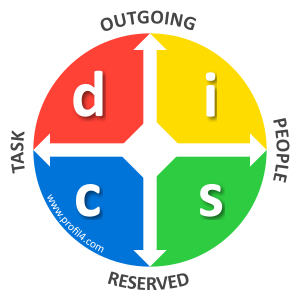
The 4 components of the DISCp4 model are represented by the initials which make up the acronym. They are also associated with different colors: red, yellow, green and blue. Each profile can be defined according to the main characteristics listed below. These caricatured portraits can be tempered by bearing in mind that a person’s profile is always made up of several components.

DOMINANT profiles are full of energy, action-oriented and in constant motion. They are naturally positive and factual, sometimes aggressive, outgoing and persistent and they easily focus on their aims. They adopt a top-down, direct approach in their dealings with others.

INFLUENTIAL profiles care about getting on well with people. Generally positive and extroverted, they enjoy other people’s company and believe life should be fun. Cheerful and friendly, they deal with others in a convincing and democratic manner.

STABLE profiles like their life to feel coherent and may fight obstinately for a given cause. They are earnest and reliable. They don’t respond well to ambiguity or impersonal structures. They may be shy in their dealings with others.

CONSCIENCIOUS profiles like to think before they act. They may seem cold or indifferent. They demonstrate a strong desire to know and understand their environment. They struggle to respond to pressure from above and prefer to communicate in writing.
The height trends

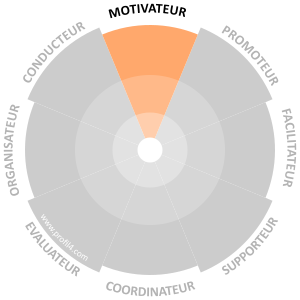
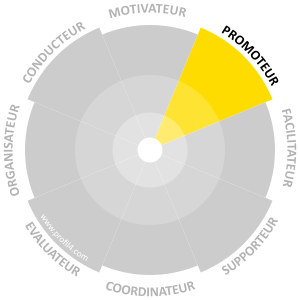
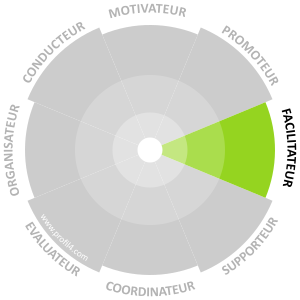
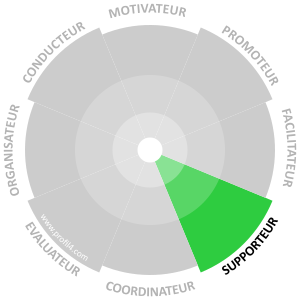
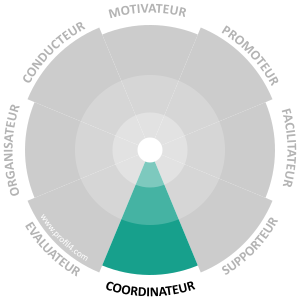

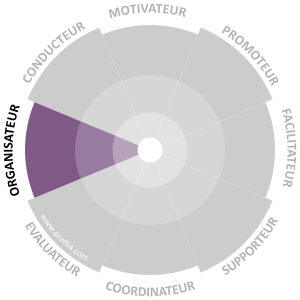
Memos
These memos sum up the main characteristics of each DISCp4 profile. They are an ideal addition for understanding your test results and adapting your communication to the context.





